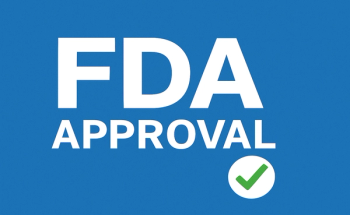
Study Summary: Abemaciclib in Combination With Fulvestrant in Women With Hormone Receptor-Positive, Endocrine-Refractory, Advanced Breast Cancer (MONARCH 2)
Background
More than 70% of women with metastatic breast cancer have hormone-receptor positive disease. Resistance to endocrine therapies in this population is common and problematic. Minimizing resistance to endocrine therapies is one strategy to improve patient outcomes. Data suggest that the use of cyclin-dependent kinases (CDK) inhibitors, such as abemaciclib, may decrease resistance to endocrine therapies. In addition, preclinical data suggest that inhibition of CDK-4 and -6 with abemaciclib demonstrates sustained growth arrest with initiation of apoptosis or senescence.1
Abemaciclib is an orally administered, selective CDK-4 and -6 inhibitor that is structurally distinct from other CDK 4 and 6 inhibitors. In a phase 1 study, abemaciclib demonstrated clinical activity in patients with hormone receptor-positive metastatic breast cancer. In the phase 2 MONARCH-1 trial, investigator-assessed overall response rates were 19.7%, with abemaciclib monotherapy (200 mg twice a day) in patients with hormone-refractory, human epidermal growth factor (HER)-2 negative metastatic breast cancer.1
Study Design
The MONARCH-2 trial is a phase 3, randomized, double-blinded, placebo-controlled trial that evaluated the use of abemaciclib alone and in combination with fulvestrant in women with hormone receptor-positive, HER-2 negative, advanced breast cancer who had progressed while receiving neoadjuvant or adjuvant endocrine therapy. Progression was required ≤12 months from the end of adjuvant endocrine therapy or during first-line endocrine therapy for metastatic disease.1
Patients were randomized 2:1 to abemaciclib plus fulvestrant or placebo plus fulvestrant. Randomization was stratified according to metastatic site (eg, visceral, bone only) or type of resistance (eg, primary or secondary). Fulvestrant was administered as a 500 mg intramuscular (IM) injection on Days 1 and 15 and then 500 mg IM injection every 28 days thereafter. At study onset, abemaciclib was administered as 200 mg orally twice a day. After a review of safety data and the corresponding rates of dose reductions, the starting dose was decreased to 150 mg twice a day in all patients, new patients, and those currently receiving 200 mg twice a day. Dose reductions for both fulvestrant and abemaciclib were permitted. Treatment was continued until disease progression, death, or patient withdrawal from the study.1
The primary endpoint was investigator-assessed progression-free survival (PFS). Secondary endpoints included objective response rate ([ORR] complete responses plus partial responses), duration of response ([DoR] time from complete response or partial response until progressive disease or death), clinical benefit rate (CBR), along with safety and tolerability.1
Baseline Characteristics
A total of 669 patients were randomized to either abemaciclib plus fulvestrant (n = 446) or placebo plus fulvestrant (n = 223). Baseline characteristics were generally well balanced between groups. The most common sites of metastases were visceral (55.8%) and bone-only (26.9%). Most patients progressed while receiving endocrine therapy; only 8.8% of patients progressed within 12 months after completing adjuvant therapy.1
Efficacy
At data cutoff, 38.1% of patients in the abemaciclib group and 20.2% of patients in the placebo group were receiving the study drug. Patients in the abemaciclib group received a median of 15 cycles; patients in the placebo group received a median of 9 cycles.1
In the intention-to-treat (ITT) population, there were 379 documented events of progression or death without documented progression (abemaciclib, n = 222 events [49.8%]; placebo, 157 events [70.4%]). The median length of follow-up was 19.5 months. PFS was significantly longer with abemaciclib versus placebo (P <.001); median PFS was 16.4 months with abemaciclib and 9.3 months with placebo. The PFS results were confirmed by a blinded central review (P <.001). A sensitivity analysis of patients enrolled after the starting dose was decreased to 150 mg twice a day was consistent with the ITT population. PFS was consistent across all patient subgroups (type of resistance, progesterone receptor status, metastatic site, measurable disease, age, geographic region, race, Eastern Cooperative Oncology Group performance status, menopausal state, and organ involvement).1
ORR was 35.2% with abemaciclib and 16.1% with placebo (P <.001). In patients having measurable disease, ORR was 48.1% with abemaciclib and 21.3% with placebo (P <.001). Responses in both groups were durable; 12-month DoR was 67.8% with abemaciclib and 66.9% with placebo. CBR was 72.2% with abemaciclib and 56.1% with placebo (P <.001). 1
Safety
In the safety population, the most commonly reported adverse events (AEs), any grade, with abemaciclib versus placebo were diarrhea (86.4% vs 24.7%), neutropenia (46% vs 4%), nausea (45.1% vs 22.9%), fatigue (39.9% vs 26.9%), and abdominal pain (35.4% vs 15.7%). Many of these events were grade 2 or less. Febrile neutropenia was reported in 6 patients who received abemaciclib (5 events were ≤grade 3; grade was not reported for 1 event). Serious AEs were reported in 22.4% of patients who received abemaciclib and 10.8% of patients who received placebo. Thromboembolic events were the most commonly reported serious AE (abemaciclib, 2%; placebo, 0.4%). Four patients randomized to abemaciclib experienced pulmonary embolism.
Abemaciclib dose-reductions, dose-interruptions, and discontinuations due to AEs were reported in 15.9%, 42.9%, and 51.9% of patients, respectively.1
There were 14 deaths (3.2%) with abemaciclib/fulvestrant; of these, 9 were AE-related. There were 10 deaths (4.5%) with placebo/fulvestrant, and 2 of which were AE-related.1
Conclusions
The addition of abemaciclib to fulvestrant significantly improved PFS, ORR, and CBR in women with hormone-receptor positive, HER-2 negative, advanced breast cancer who had progressed while receiving neoadjuvant or adjuvant endocrine therapy. In the MONARCH-2 trial, abemaciclib demonstrated a tolerable safety profile.1
Reference
1. Sledge GW, Jr, Toi M, Neven P, et al. MONARCH 2: Abemaciclib in combination with fulvestrant in women with HR+/HER2- advanced breast cancer who had progressed while receiving endocrine therapy. J Clin Oncol. 2017;35(25):2875-2884. doi: 10.1200/JCO.2017.73.7585.
Newsletter
Stay ahead of policy, cost, and value—subscribe to AJMC for expert insights at the intersection of clinical care and health economics.








